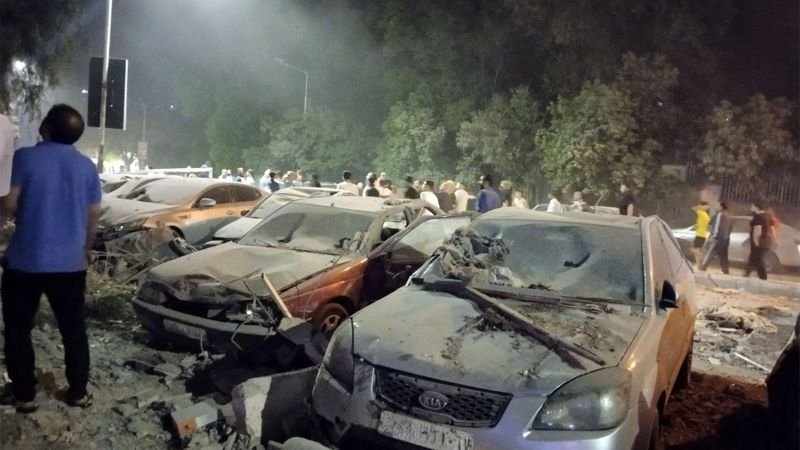ISRAEL and Iran have carried out a new wave of attacks on key cities, fuelling fears of an all-out sustained war, with heavy exchanges now entering a third day.
Iranian missiles struck northern Israel, killing at least three people and wounding 13 others, late Saturday into Sunday, according to Israeli media.
Iranian officials, meanwhile, said the Shahran oil depot, northwest of Tehran, was targeted by Israel. The Tasnim News agency said operational and rescue forces arrived at the scene and are still working to extinguish the fire.
More videos posted to social media, and also verified by Al Jazeera’s Sanad, showed Iranian missiles in the skies of northern Israel.
Israel’s Channel 13 reported that missiles hit Haifa and nearby Tamra. The attack on Haifa was widely anticipated, as the coastal city hosts strategic gas infrastructure. Analysts suggest this marks the beginning of Iran’s promised retaliation for the Israeli bombardment of key energy sites near Bushehr and Abadan.
Despite widespread public backing for military action against Iran, many Israelis remain sceptical. Speaking to Al Jazeera, Israeli political analyst Ori Goldberg said there is growing anxiety and distrust among the population.
“There is mass support for going after Iran – that’s the official narrative,” he said. “But people don’t believe these strikes will destroy Iran’s nuclear programme or bring regime change. They’re starting to fend for themselves.”
Goldberg added that many suspect political motives behind the campaign, suggesting leaders may be using the crisis to boost their standing. “There’s no faith in the government’s ability to protect civilians,” he said. “People feel abandoned.”
Following the Israeli attacks on Iran, Tohid Asadi, reporting from Tehran for Al Jazeera, said smoke was seen rising from the Shahran oil depot in Tehran following an Israeli strike, though the full extent of the damage remains unclear. “It was said that the oil storage centre was targeted, but the extent of the damage is not that much,” he reported.
He added that Iranian air defences were activated in the capital shortly after the strike. “I saw the interceptions. The sounds of explosions were heard,” he said.
Asadi described the ongoing Israeli bombardment of nuclear, military and civilian sites across Iran as “unprecedented”, warning that the developments are likely to trigger further escalation.
Earlier on Saturday, Iran said that Israel intensified its military campaign, targeting key infrastructure and dealing another blow to the country’s struggling economy, as the conflict spirals towards a potential sustained all-out war.
Iranian officials confirmed that a blaze had erupted at the South Pars gas field – one of the country’s most vital energy sources – after it was struck by Israeli forces on Saturday. Though Iranian authorities later said the fire had been extinguished, the scale of the disruption remains unclear.
Energy expert Manouchehr Takin told Al Jazeera that targeting South Pars – crucial for domestic consumption and commercial use – would deepen Iran’s internal energy crisis. “This is an attempt to paralyse Iran’s economy,” Takin said. “The domestic gas network was already under pressure due to sanctions and mismanagement.”
Al Jazeera’s Nour Odeh, reporting from Amman, said the move marked a shift in strategy. “Israel has previously targeted Iran’s military infrastructure, nuclear scientists and missile facilities. Now it’s going after civilian economic assets,” she said, warning that the economic impact could be severe if damage is extensive.
Tehran reported at least 80 people killed and more than 320 injured, including women and children, following Israeli strikes on both military and residential sites across the capital.
Among the dead are reportedly nine nuclear scientists. Iran hit back with a barrage of missiles that penetrated Israel’s high-tech missile defence system, with at least four deaths and more than 200 injuries recorded in Israel since Friday.
Iranian state media also claimed the downing of an Israeli F-35 fighter jet, one of the most advanced aircraft in Israel’s arsenal. While several Iranian news outlets have cited a military statement confirming the incident, there is no official footage or visual evidence, and Israeli officials have dismissed the reports as fabricated.







